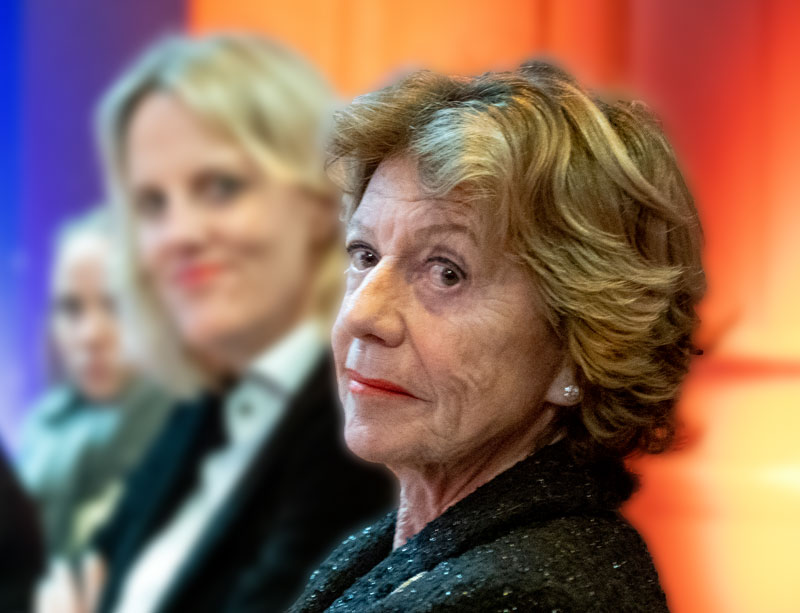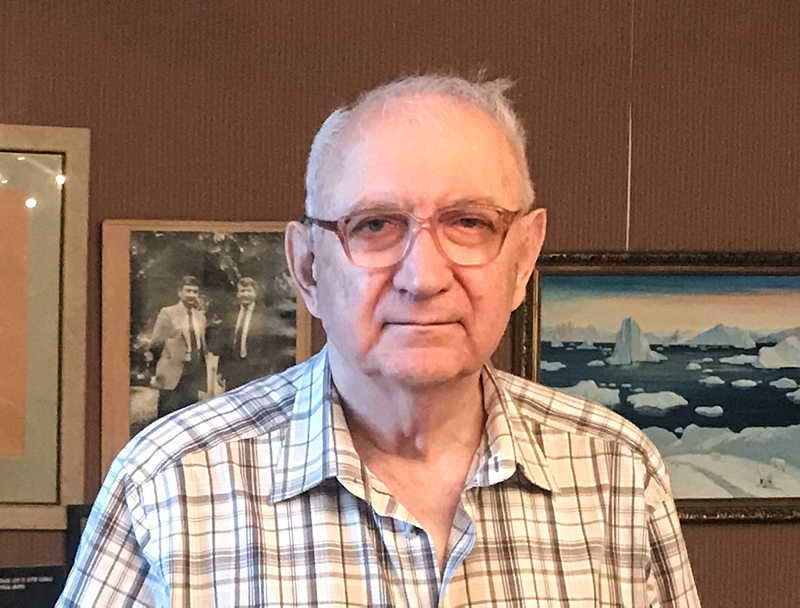Neelie Kroes, born in 1941 in Rotterdam, is a retired Dutch politician and businesswoman. Growing up in a liberal family and her father a local businessman, Kroes ended up studying Economics at the Rotterdam School of Economics. She was the first in her family to attend university.
Kroes began her political career in 1970 after being elected member of the Rotterdam city council. As a member of the centre-right People’s Party for Freedom and Democracy (VVD) she has held many positions over the course of her long career, including 11 years as a Vice President of the European Commission in charge of the EU’s digital agenda as well as competition. She also served as Chairwoman of Nyenrode Business Universiteit (1991-2000), and held several ministerial positions in Dutch government, including from 1982-1989 as Minister for Transport, Public Works and Telecommunication.
Kroes officially retired from active politics in 2014, only to focus on her many other interests. Currently, Kroes is the Netherlands’ Special Envoy for digital start-ups, where she continues to promote women in the tech industry and female entrepreneurship.
In their conversation she tells Tim Wagemakers about the situation of her family after the Second World War, her opinion towards quotas for women (she is pro), and the importance of compromise in EU politics.
Kroes was interviewed by Tim Wagemakers, a Dutch journalist who works as a programme editor at De Balie, the Netherlands’ foremost venue for arts, debate, and lectures.
Interview Highlights
On her studies and her first job
I represented the first generation of my family to go to university, and my father was fine with that. He didn’t want me to pay for my studies with a grant, because he didn’t want to have anything to do with the government. He felt that that was something you ought to do yourself. We had limited means, because what we had went into the business. He said: you may study, but if you’re going to you should study economics, because that way you can continue living at home. And then, even if you quit your studies halfway through after getting your candidate’s degree, you can still get a job because you have a candidate’s degree in economics. So it was based on very rational arguments, and once I started studying economics I actually did find it interesting. After getting my candidate’s degree, I had some income of my own. That’s when I became a student assistant, because that way I could rent a room.
On the importance of Europe
I stood in front of the wall with my German colleague, not in Berlin but farther to the south. I saw that border, with barbed wire and armed people, saw how it cut a village in two – my colleague told me that families had been torn apart. That really brought home to me that Communism was something we couldn’t allow, that we had to resist. And you knew that those people were still receiving messages from the West, so they dreamed of maybe being part of Europe one day. That is part of the explanation why so many countries joined Europe later on, perhaps too many in too short a time, but bear in mind that the arguments behind that were in large part military and geopolitical arguments: these countries have been liberated from Communism, and now they want to join us, and although they may not quite satisfy the rules of the game, we have to take them now or they might end up joining the other side.
On liberalising air transport in Europe
So as a small country, it was a constant fight to keep things moving along. My portfolio included air traffic, an industry that was more far-reaching than just Europe, and airlines were very cartelised back then. The big companies were in control, which included KLM as the oldest airline business. You could really tell, looking at the prices; it was obvious that the big companies were monopolising everything. This was just around the time that prosperity was increasing, so people were beginning to want to see more, to travel. I’ll never forget how we had these transport councils with members from different countries, and I remember this moment when the English representative and I, we were sitting on the windowsill talking about how we’d have to push through at some point, somehow. Those big companies were still dictating everything, and we said to each other: we need to liberalise air transport, and then see what happens. That way, you’d no longer be restricted to big airports, you’d be able to have more than just one important airport per country.
On the benefits of European integration
Lots of people travel, make phone calls, and do all sorts of things that, in essence, cover a larger area – that is, Europe. They see that as normal. They also consider it normal that when they go to the supermarket, they can find everything they need, and so on. But then, when it comes to the discussion about whether you are pro-Europe or against it . . . Look, in every organisation where agreements are made, there are people who tend to over-regulate things. But the way I see it, if you feel that things are over-regulated, then try to do something about that. But don’t throw out the baby with the bathwater.
On contemporary politics
Wagemakers: When you look at the political debate about Europe now, would you say that it’s a different kind of debate than when you were in politics?
Kroes: Yes – there are more parties. A lot more parties. And there is that confrontation with those who are “against.” Things are often very black-and-white now, very us-versus-them. So that’s different, yes.
Wagemakers: And the promise of Europe, is that still the same? That safety?
Kroes: Yes, and I think – but this is something you are probably better able to answer than myself – that your generation has come to view the “no more wars” argument as worn-out. “What are you talking about, there is no more war.” But me, I still have a clear image of war in my mind. I think that your generation is saying: quit obsessing about that.
On gender equality
Did I have to fight for my place? Back then, when I studied economics, there were very few female students. In my work and in my political work, it was all men. And you shouldn’t think that you can go ahead and change the rules all on your own. But I did strive to bring in more women, because that way you get a varied society, more variation in meetings. But I also realised that as long as I was on my own or with one or two others, there was no way I would manage to change things. I was against a quota, I believed we could do it under our own steam, until I saw the figures – this was still in the previous century – and I thought: I’m going to need a hundred lifetimes to get somewhere with this, it’s not going to happen. So a quota is necessary to create that shift, not forever, but to bring about the change.



